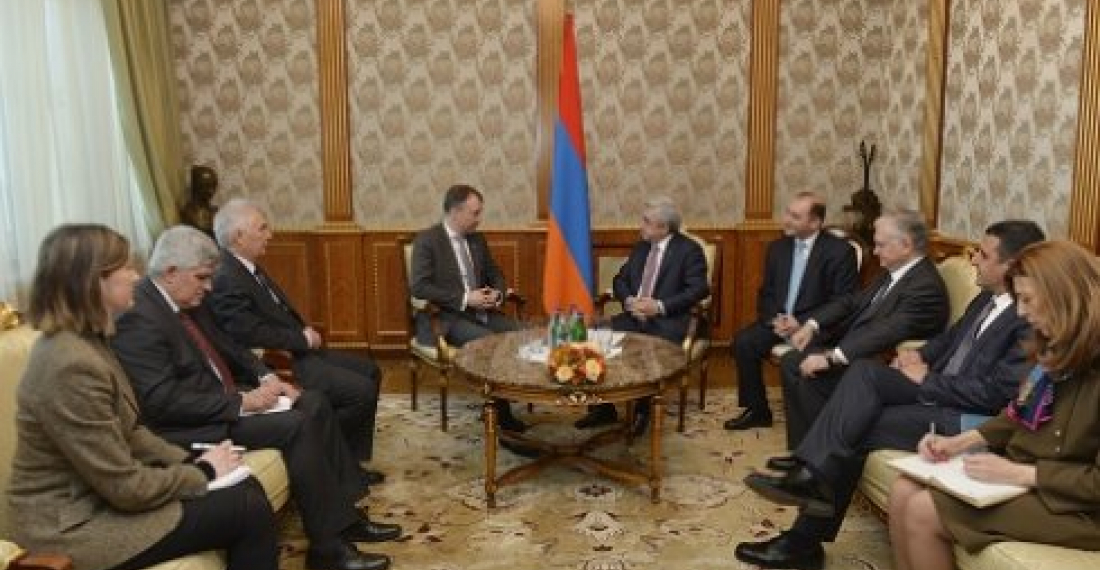The European Union Special Representative for the South Caucasus, Toivo Klaar, has wound up his visit to the region with a meeting on Friday (23 February) with the president of Armenia, Serzh Sargsyan.
A statement on the website of the Armenian President said that Sargsyan and Klaar discussed issues related to bilateral relations between Armenia and the EU, the regional situation, as well as the Nagorno-Karabakh conflict.
Present for the meeting with the Armenian president was the Head of the EU Delegation to Armenia, Piotr Switalski and members of the team of the Special Representative.
On Monday, 26 February Toivo Klaar is expected to speak at an event at the European Policy Centre in Brussels on the state of relations between the EU and the countries of the South Caucasus, as well as the EU contribution to conflict resolution in the South Caucasus. The meeting is organised jointly by the EPC and LINKS (Dialogue, Analysis and Research)
source: commonspace.eu with agencies
photo: EU Special Representative, Toivo Klaar, with the President of Armenia, Serzh Sargsyan, at their meeting in Yerevan on 23 February 2018 (picture courtesy of the press service of the President of Armenia).







